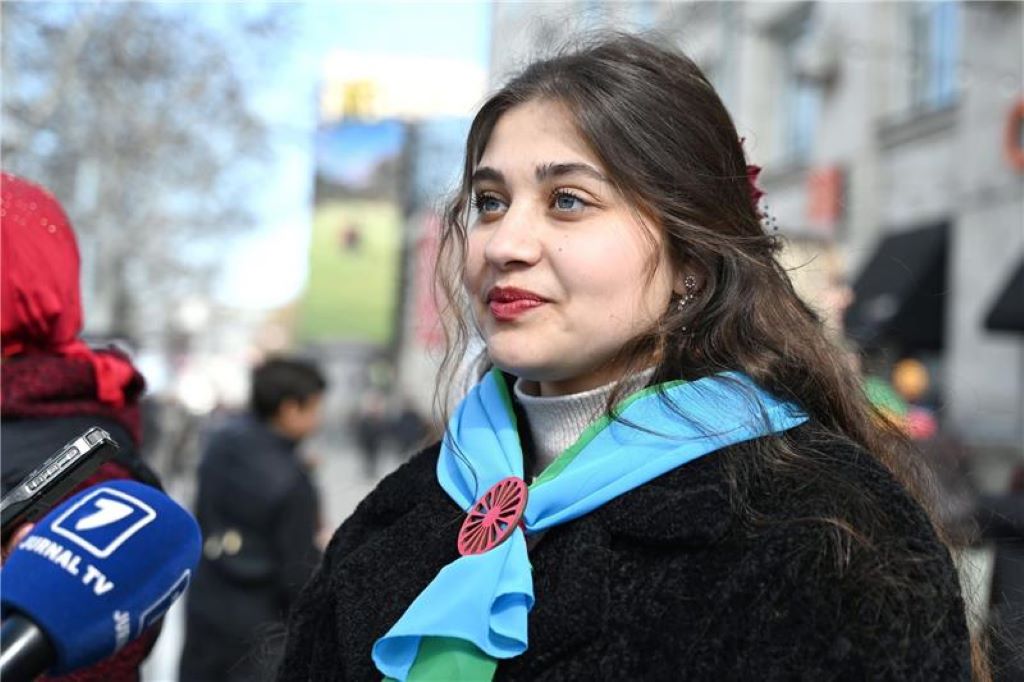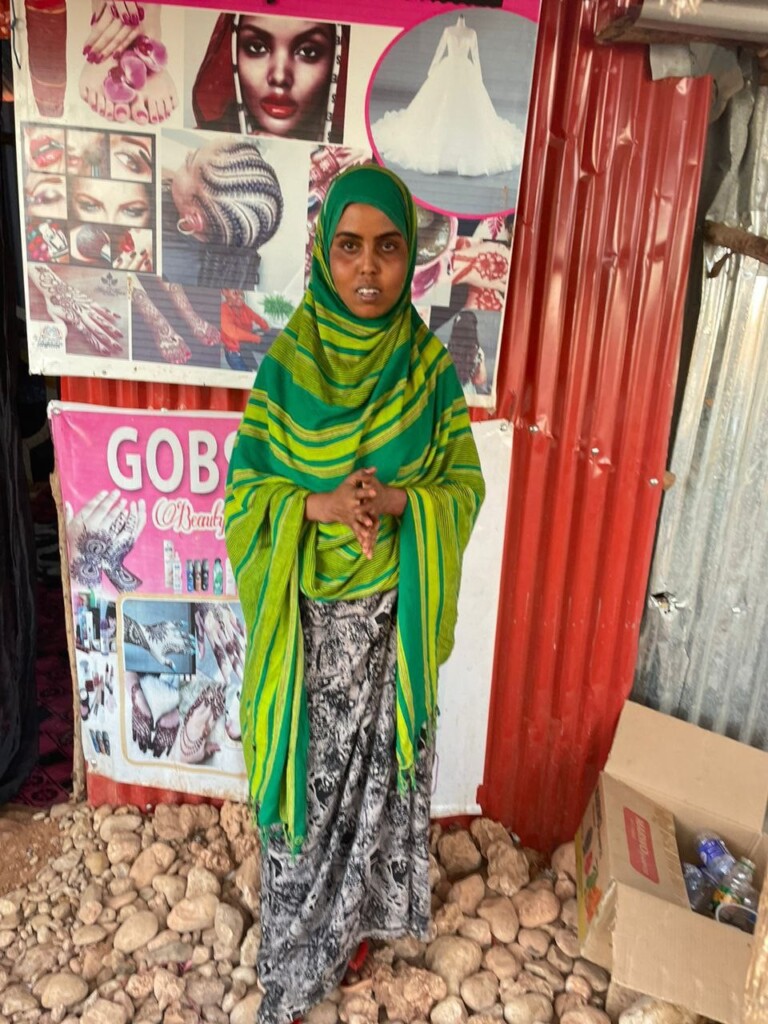Deaconess Foundation’s development cooperation programme is building more just societies – results report published
22.10.2025
In 2024, the Deaconess Foundation’s and its partners’ development cooperation programme reached over 16,000 people in vulnerable positions in Eastern Europe, the Western Balkans and East Africa. According to the annual report published today, the programme opened channels to employment, stronger participation and reconciliation for people facing marginalisation.

Moldovan Roma community worker Romanita Radita, supported by the Deaconess Foundation’s development cooperation programme, was appointed last year as a permanent member of the advisory council of a municipality in the Drochia region. Thanks to her work, municipal services were made more accessible to the Roma community.
The Deaconess Foundation’s development cooperation programme aims to strengthen the equality, participation and well-being of people in the most vulnerable situations. The programme, funded by the Ministry for Foreign Affairs, is carried out in collaboration with civil society organisations operating in eight countries in East Africa and Eastern Europe.
“At the beginning of the year, we measured the impact of the three-year programme for the first time. Based on the results, we can say that the programme appears to improve the well-being of participants even better than anticipated,” explains Saija Niemi, Head of International Affairs at the Deaconess Foundation.
The programme’s impact was measured in three projects that concluded in late 2024 in Kosovo, Ukraine and Tanzania. According to the report, 95.5 per cent of those who participated in the programme’s activities reported that their well-being had improved as a result, and two-thirds of them said their financial well-being was better than before joining the programme.
Improved livelihoods open up future opportunities
Participants’ financial well-being has improved, particularly thanks to the programme’s employment and entrepreneurship promotion activities and the educational opportunities it provides. The programme also seeks to persuade employers to hire people from difficult circumstances more frequently.
After the programme’s first three years of operation, some 1,470 programme participants have found work, started a business or obtained another sustainable source of livelihood.
One of the young people who established their own business is Hilaal Mataan Bashir from the town of Gode in Ethiopia. Due to her family’s financial problems, she had to leave school and look for ways to earn money. But finding a livelihood proved difficult.
With support from the Deaconess Foundation’s development cooperation programme, Bashir participated in short-term training at Gode Polytechnic, where she learnt hairdressing and beauty care. She also received entrepreneurship training, as well as basic supplies and a small start-up capital to establish a beauty salon.
Today, Bashir also runs a clothing shop in her beauty salon and trains other young women in the trade for a small fee. Currently, there are 12 girls participating in the training, and 19 who have completed the training and have successfully started their own businesses.
“With the income from my business, I’m able to both support my family and save for the future,” says Bashir.

Hilaal Mataan Bashir has been able to train other young women in the trade at the beauty care she created.
Advocacy work brings about long-term structural change
In addition to supporting individuals, the Deaconess Foundation and its partner organisations seek to promote equality in programme countries through sustained advocacy work. In 2024, the programme’s partner organisations participated in 51 political processes to advance the rights of people in vulnerable positions.
“In Eastern Europe, the programme’s partner organisations were involved in reforming anti-discrimination legislation, employment quotas and the decentralisation of administration. In Ukraine and Moldova, among other things, cooperation was carried out with equality bodies to improve the situation of Roma minorities,” says Saija Niemi.
In Kosovo, the anti-discrimination law updated with the support of the programme partner better recognises discrimination experienced by Roma and strengthens the authorities’ capacity to combat it. New employment initiatives and housing legislation were also introduced that improve the position of minorities.
Experts from the Deaconess Foundation and its partner organisations also took part in EU and Council of Europe forums promoting equality and democracy, and organised campaigns to advance human rights and equality.
“I now feel I can defend myself”
The development cooperation programme has also increased community involvement among vulnerable groups and across society as a whole. Strengthening participation improves the well-being of individuals and communities, and is also a cornerstone of democracy.
In addition to improving financial participation, the programme increased access to employment, education and health services for minorities, people with disabilities and young people. Nearly 600 officials and service providers learnt more about minority rights and how to strengthen participation in training sessions organised by the programme in 2024. In Kosovo, training for social workers transformed their approach, making it more inclusive and benefiting all their clients.
At the individual level, participants felt they could defend their rights and influence their own lives. As one Eastern European Roma participant in the programme stated:
“I feel like I can defend myself now. Often police or authorities were just humiliating us, treating us like we are not humans. I thought that it is how things are supposed to be, so I just tried to survive. Now I know I can stand for myself. I have a right to it. If something, I know where to go, to whom I should ring. We can solve problems. I can defend myself and my family legally.”
Services improve when minorities are involved in decision-making
Due to the programme’s support, discriminated groups such as Roma women in Eastern Europe have been able to participate more in decision-making.
For instance, Romanita Radita, a young Roma community worker supported by the programme, was appointed as a permanent member of the municipality’s advisory council in the Drochia region in northern Moldova last year. Previously, Roma women and young people had virtually no means of influencing municipal affairs.
Thanks to Radita’s advocacy work, the nursery in the Roma area extended its opening hours to better support single mothers working long shifts. Nursery staff were provided with training on working in a multicultural environment. Additionally, the area’s family doctor now makes monthly visits to the Roma community, offering health check-ups and advice to women with disabilities, the elderly, and mothers of young children.
“Radita’s example demonstrates how increased minority participation in decision-making can transform services to make them more functional and inclusive.’ In this case, the change went even deeper, restoring trust between families and local authorities. Community members said they finally felt seen and heard,” notes Saija Niemi.